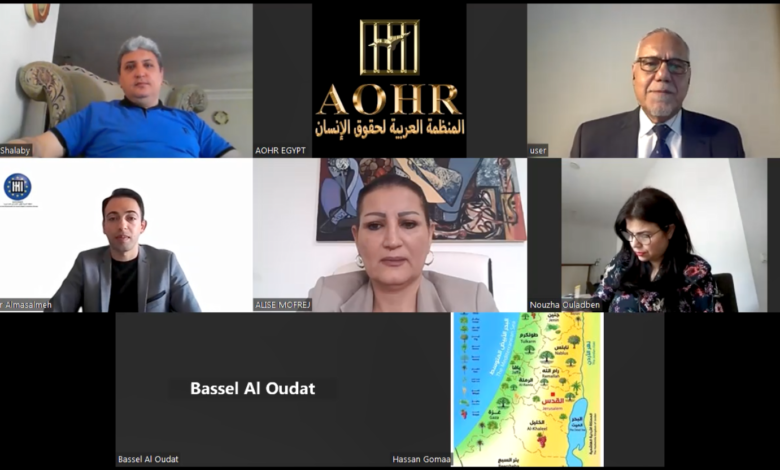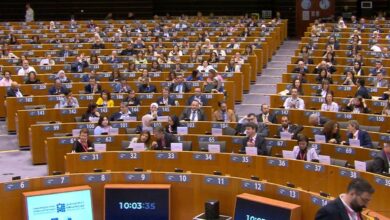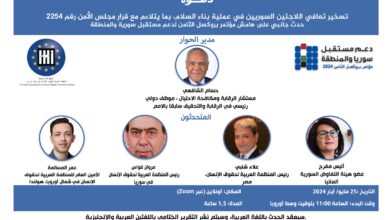Press release … the side-event recommends the implementation of the UNSCR 2245 to end the Syrian refugees crisis

The virtual side-event organized by the Arab Organization for Human Rights in North Europa (AOHR-NE) on May 25, 2024, on the sidelines of the eighth Brussels conference on “Supporting future of Syria and the region,” has ended.
The event entitled “Harnessing the Resilience of Syrian Refugees for Peacebuilding, in Alignment with UNSCR 2254” and discussed three main axes:
- Challenges and Risks facing the Syrian refugees in neighbouring countries and diaspora.
- Resilience and Potentiality demonstrated by Syrian refugees in the face of adversity.
- Advocacy and diplomacy to include the refugees in the decision-making processes and enhancing their participation in achieving the UNSCR 2254.
Among the speakers were Ms. Alise Mofrej Member of the Syrian Negotiation Commission, Mr. Alaa Shalaby President of the Arab Organization for Human Rights (Egypt), Mr. Marwan Kawas President of the Arab Organization for Human Rights in Syria and Mr. Omar Almasalmeh Secretary General of the Arab Organization for Human Rights in North Europa. The event were moderated by Mr. Hossam El-Shaffei Oversight Management Advisor & Former United Nation Oversight Civil Servant.
The discussions came to the following outcomes and recommendations:
- The solution to the Syrian humanitarian crisis is political, and begins with the full implementation of UNSCR 2254.
- It is necessary to distinguish between the resilience of Syrian refugees in the neighbouring countries and diaspora, and the rehabilitating of the Syrian regime, which is primarily responsible for the Syrian crisis and the refugee crisis.
- Standing against using the refugees in the political and media polarization, and dealing with their issues humanely and in accordance with international laws and treaties.
- Standing against the attempts to forcibly deport refugees from neighbouring countries and the diaspora, following up on the violations and abuses they are exposed to, and holding their perpetrators accountable.
- Empowering Syrian refugees in neighbouring countries and the diaspora through active integration programs that include better accessibility to regular and higher education, skills training, job opportunities that matches with their experiences and health care services, which enhances their resilience and makes them able to contribute positively to the development of the hosting communities.
- Encouraging initiatives that enable refugees to organize themselves socially and politically can reduce the burden of their presence in the host communities, and create collective efforts to solve societal challenges related to them. It enhances their self-reliance and enables them to contribute effectively to the efforts required to achieve the political solution, and perhaps the reconstruction and development of Syria, later.
- The return of refugees must be voluntary and to safe environment, and there are conditions and guarantees to achieve this, which include at a minimum: releasing detainees, revealing the fate of the forcibly disappeared, stopping detention and abuse, ensuring the availability of services such as education, health, clean water, sanitation, electricity, heating, and safe homes, ensuring the presence of international bodies and agencies to protect the returnees, including settling the entire legal and administrative restriction, and not humiliating or taking revenge on them.
More details can be found in the summary report of the event.




